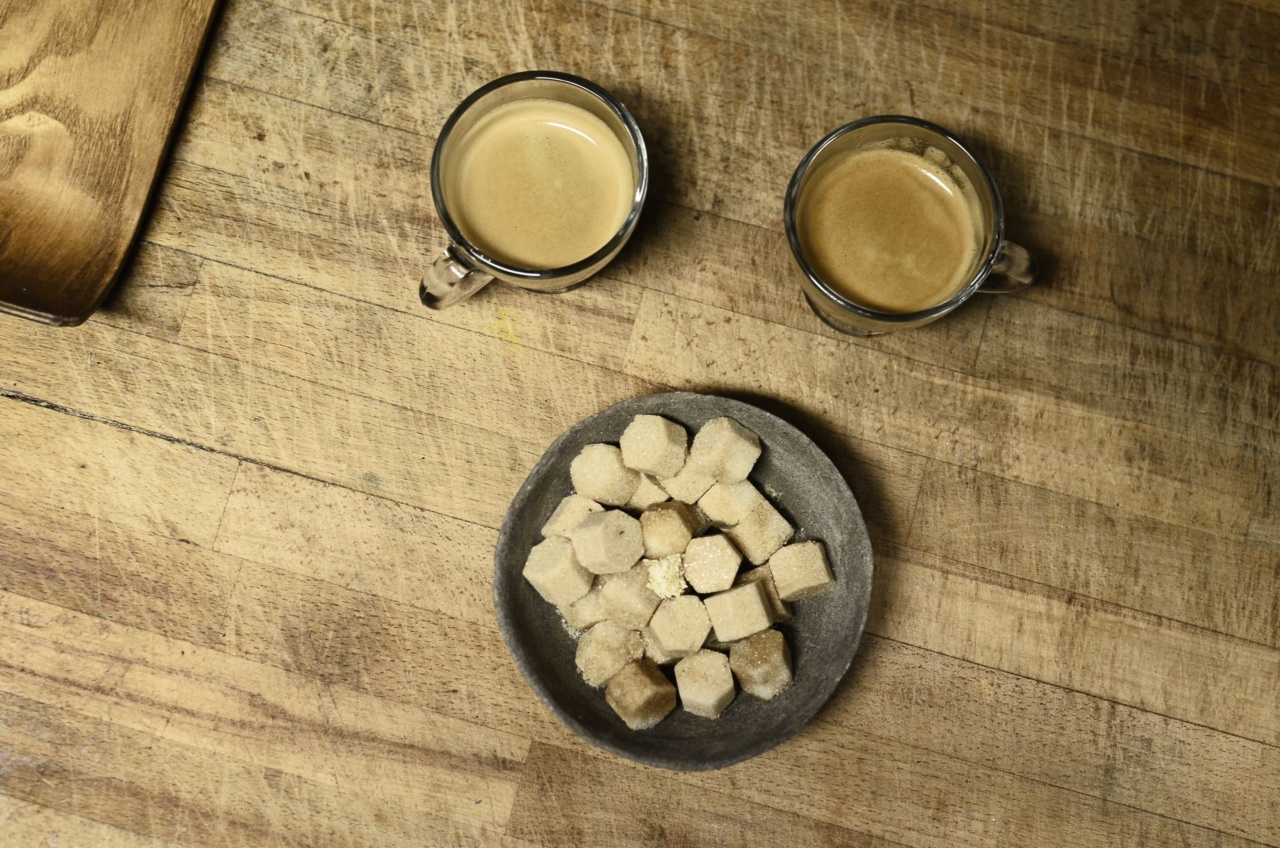Sugar beverages, such as sodas, energy drinks, and fruit juices, have become increasingly popular in recent years. However, research suggests that excessive consumption of these sugary drinks may have negative effects on our cognitive health.
In this article, we will explore the link between sugar beverages and cognitive decline, the potential risks associated with their consumption, and provide tips on how to reduce your intake and choose healthier alternatives.
The Link between Sugar Beverages and Cognitive Decline
A growing body of evidence suggests that there is a connection between sugary drinks and cognitive decline. High sugar intake can lead to insulin resistance, inflammation, oxidative stress, and impaired glucose metabolism in the brain.
These factors are known to contribute to the development of cognitive disorders such as dementia and Alzheimer’s disease.
Research conducted on both humans and animals has found associations between high sugar consumption and declines in cognitive function.
A study published in the journal Alzheimer’s & Dementia reported that individuals who consumed sugary beverages frequently had lower overall brain volumes and poorer episodic memory, which is important for remembering specific events and experiences.
Potential Risks of Consuming Sugar Beverages
1. Increased Risk of Dementia: Excessive sugar consumption can lead to chronic conditions like diabetes and obesity, which are known risk factors for cognitive decline and dementia.
The American Diabetes Association states that people with diabetes have a significantly higher risk of developing Alzheimer’s disease.
2. Memory Loss and Impaired Learning: Regularly consuming sugary drinks can impair memory and learning abilities.
A study published in the Journal of Nutrition, Health & Aging found that high sugar intake was associated with poorer performance in memory and learning tasks among older adults.
3. Accelerated Brain Aging: The negative effects of sugar beverages on cognitive health can lead to accelerated brain aging.
A study published in the journal Age found that higher sugar consumption was associated with smaller hippocampal volumes, a brain region vital for memory and learning, which is often affected early in the progression of Alzheimer’s disease.
Prevention Strategies and Tips for Reducing Sugar Beverage Consumption
1. Read Labels and Choose Wisely: Check the nutritional information on beverage labels and opt for drinks with little to no added sugars. Choose water, unsweetened tea, or homemade fruit-infused water instead of sugary options.
2. Limit Consumption of Sweetened Beverages: Be mindful of your sugar beverage intake and limit it to occasional treats rather than daily consumption. Gradually reduce your consumption and replace sugary drinks with healthier alternatives.
3. Opt for Natural Alternatives: If you crave a sweet beverage, opt for natural alternatives like fresh fruit juices or smoothies made with no added sugars. These options provide essential nutrients and fiber along with a natural sweetness.
4. Stay Hydrated with Water: Water is the best and healthiest choice when it comes to staying hydrated. Carry a water bottle with you throughout the day and make it a habit to reach for water instead of sugary drinks.
5. Educate and Encourage Others: Share the knowledge about the negative effects of sugar beverages on cognitive health with your family, friends, and community.
Encourage them to make healthier choices and emphasize the importance of overall brain health.
Healthier Alternatives to Sugar Beverages
1. Water: Stay hydrated by drinking plain water throughout the day. Add slices of lemon, cucumber, or mint leaves for a refreshing twist.
2. Herbal Teas: Enjoy a cup of unsweetened herbal tea. Options like chamomile, peppermint, or green tea offer various health benefits without the added sugars.
3. Infused Water: Create your own flavored water by infusing it with your favorite fruits, herbs, or vegetables. Try combinations like strawberry and basil or cucumber and lime.
4. Homemade Smoothies: Blend fresh fruits, vegetables, and yogurt for a nutritious and naturally sweet smoothie. Avoid adding additional sugars or syrups.
5. Sparkling Water: Quench your thirst with sparkling water without added sweeteners. Add a splash of citrus juice or a few berries for a hint of flavor.
Conclusion
While sugar beverages may provide a temporary burst of energy and satisfaction, excessive consumption can have detrimental effects on our cognitive health.
The link between sugar beverages and cognitive decline is supported by scientific research, highlighting the importance of reducing our intake of these drinks. By making healthier choices and choosing alternatives like water, herbal teas, infused water, homemade smoothies, and sparkling water, we can protect our brain health and reduce the risk of cognitive decline.






























